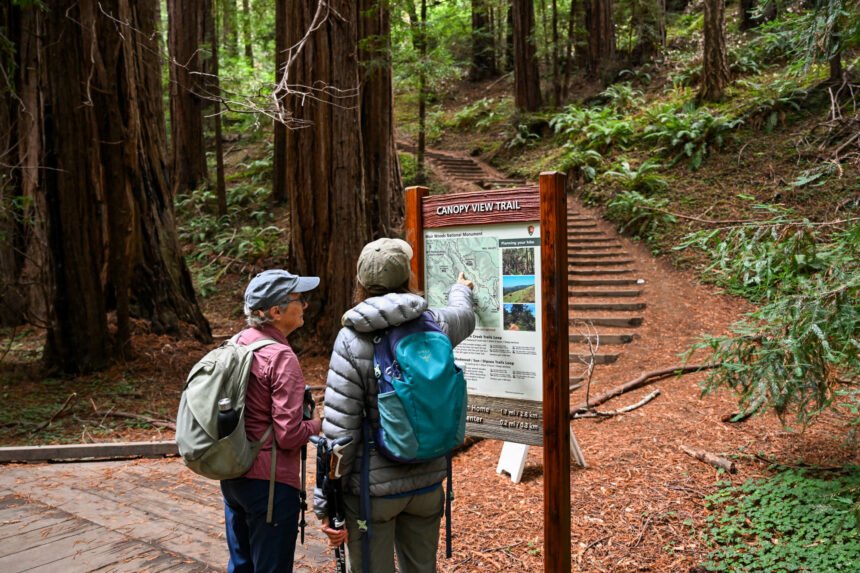As documented by the Resistance Rangers advocacy group, the website for New York’s Stonewall National Monument was altered in February to remove references to transgender people. Language on other national park websites was removed in February and then restored, including information about abolitionist leader Harriet Tubman on an NPS webpage about the Underground Railroad.
In the Bay Area, as reported by Richmondside, a handful of staff members at Rosie the Riveter World War II Homefront National Historic Park briefly removed an exhibit focused on the LGBTQ+ history of the region right after Trump’s inauguration in January, before putting it back up a few days later.
“It’s an anxious time to be a superintendent,” Lehnertz said.
Donna Graves, an independent historian who helped develop the Rosie the Riveter Park back in 2000, said Rosie is the kind of national park site where “inclusive storytelling permeates every aspect of the exhibits in the visitor center, the handouts, the films that are shown.”
Parks staff found themselves in a quandary, said Graves, who organized a rally against the order in August. Should employees submit every piece of content in the park for federal review, “seeing it as sort of flooding the zone”?
“Others took the stance of, ‘Well, we’re not ‘inappropriately’ disparaging anybody. We think what we’re doing is appropriate,’” Graves said. “So they did not report any content.”
‘Hard history’
The idea of taking a second look at history isn’t actually new for the National Park Service.
Lehnertz said when Jonathan Jarvis was parks director from 2009 to 2017, he made a sweeping effort to broaden the narratives on display, shifting from a previous focus on military and political history to including individuals’ stories, expanding the timeline to before the country’s founding and “opening up the story” of American history, she said.

Jarvis, she said, “helped us understand that the preamble to the Constitution — ‘We, the people’ — means ‘We, all the people; we, all the stories.’ And that means hard history sometimes,” she said.
By contrast, the Trump administration’s approach to revisiting history “isn’t an honest exercise,” argued National Parks Conservation Association’s Desai.
“It’s premeditated — there’s a goal in mind at the end,” Desai said. “They’re not really looking at all these things in a critical way or in a scholarly way. It’s about: ‘We want to erase certain parts of history, and clamp down on the Park Service from providing Americans with a full picture.’”
Jarvis — who lives in Contra Costa County after retiring from NPS — agreed. Had he still been at the helm of national parks, Jarvis said, he’d have “gone upstairs and told them this was a really stupid idea.”
“Just the task of it in of itself is completely daunting,” he said. “To think that there’s going to be somebody back there with either the intelligence — or the capacity — to somehow give a ‘Yes’ or ‘No’ to a sign that is in some visitor center in Dinosaur National Monument that talks about evolution.”
“It’s absurd,” he said.
‘Going backwards’
The federal government’s orders are forcing national parks around the country to review hundreds of years of history — events that often sharply illustrate the human cost of that state’s development.
In states including Pennsylvania, Florida, Tennessee and Louisiana, staff have been asked to flag mentions of slavery for possible removal.







